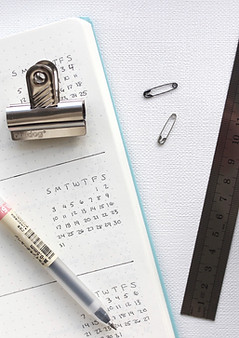Take Care of your Mental Health
Mental health is so much more than just a mood. Learn more about different factors that may be affecting your mental health.
PRAYER
God can play a major role in healing. Prayer has been shown to improve mental health greatly.

BALANCED DIET
An unhealthy diet has been linked to poor and declined mental health. Try to incorporate whole grains, leafy greens, lean proteins, wild fish, and fruit into your diet.

WATER
Water is extremely important for cognitive functioning and can make a huge difference for your mental health. The recommended daily fluid intake is 15.5 cups (124 oz.) for men and 11.5 cups (92 oz.) for women.

EXERCISE
Exercise can be essential to maintaining good mental health. Studies show that 20-40 minutes of daily exercise results in decreased feelings of anxiety, depression and other mental health symptoms.

SLEEP
Sleep has a significant impact on mental functions. Studies show that between 7-9 hours of sleep per night is ideal.

STRUCTURE & ROUTINE
Creating morning and evening routines along with adding structure throughout your day provides an element of predictability, which can lower anxiety. Take care of your basic needs within your schedule, such as brushing teeth, showering and hygiene.

SUNLIGHT
Moderate exposure to sunshine can improve symptoms of depression and your overall mood.

ELECTRONIC USE
Regular electronic use, more than 3 hours per day, is linked with higher rates of depression and anxiety, especially if used near bedtime. Try and limit your use by staying below 2 hours per day.

SUPPORTS
Talking with your family and friends can be a helpful way to address some of life's challenges. It may also be helpful to talk to a professional mental health care provider to address these concerns.

COGNITION
Challenge negative thoughts and try and replace these with more comforting ones. Start a gratitude journal. With practice, this will shift your emotions to be more positive and improve your overall mood.

SKILLS
Learn to recognize different triggers and use coping strategies to deal with these. Deep breathing, taking space, creating art, journaling, cleaning or choosing another activity can help in the moment.

DAILY GOALS
Instead of focusing on a large goal, focus on what you can do each day in order to get a little bit closer towards it.

